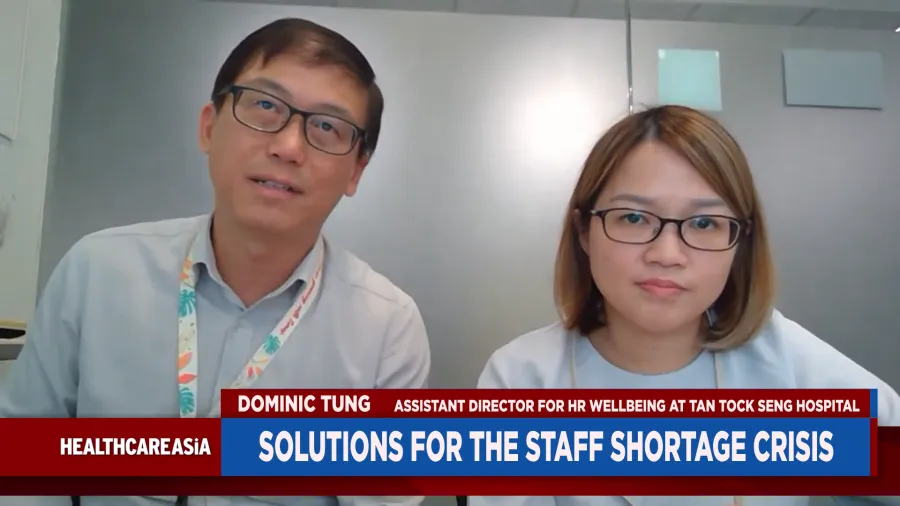
Tan Tock Seng Hospital's 'smart ward' improves staff well-being
TTSH employs innovation, robots, and automation for service efficiency and unburdening a leaner workforce.
Technology has stepped in to fill the void in human resources at the Tan Tock Seng Hospital (TTSH) in Singapore, allowing it to provide the support needed by the staff whilst improving healthcare services.
Dominic Tung, assistant director for HR Wellbeing at TTSH, said innovation has been the key to improving patient care quality amidst the need to reduce manpower when the COVID-19 pandemic set in.
”Definitely, COVID has actually placed more emphasis on the need to look after our staff, especially in the area of mental wellbeing,” Tung told Healthcare Asia, as he explained the support provided by automation and robots in hospital housekeeping.
Tung, along with HR Wellbeing Manager Jie Ying, underscored how the pandemic highlighted the worldwide demand for healthcare workers, whose numbers represented a clear shortage, that hospitals had to innovate and turn to technology.
So, they approached the challenges in manpower by looking into what changes the future holds in healthcare services and found that automation and digital technology can lighten the load on a limited and ageing staff.
In many ways, the establishment of a “smart ward” with gadgets and automated equipment has engaged the patients, improved the delivery of services, and allowed staff enough room for efficiency and upskilling while keeping their mental health in check.
But more than relieving the burden on the staff or operating with a leaner workforce, TTSH is a healthcare institution that gives importance to physical, mental, and social well-being across all its departments.
READ MORE: Tan Tock Seng Hospital develops remedy for overwhelmed hospitals
In doing so, Tung and Ying believe that these values have created the efficient, resilient, and positive workspace that carried the various departments and their staff through the three difficult years of the pandemic.


















 Advertise
Advertise


